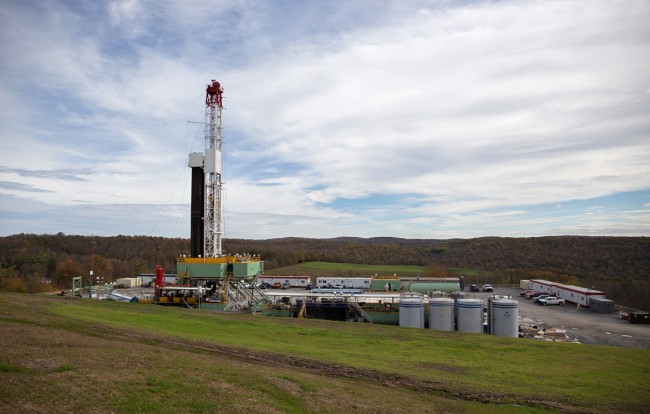
A University of Cincinnati study regularly cited by activists claiming that hydraulic fracturing, or fracking, causes air pollution was quietly retracted due to “errors” and “incorrect” calculations.
The researchers admitted that correcting their errors “changes air concentrations significantly relative to those reported in the published article. This correction also changes some of the conclusions reported in the original article.” Researchers retracted the study because of a basic math error caused by the use of incorrect units and improper use of a spreadsheet.
The study was announced at an event hosted by the anti-fracking group Carroll County Concerned Citizens and the study’s co-lead author, Dr. Erin Hayes, has also participated in other anti-fracking events.
The study had numerous flaws, as participants were actively recruited by the anti-fracking activist group, did not use random testing and did not account for sources of health hazards other than oil and gas activity. The scientists behind the study previously admitted that the sample size used for their study was too small and that the chief assumption used for the research model was “totally impractical.”
“Scientific studies by universities should be just that – scientific and without bias, especially when using taxpayer dollars to conduct the research,” Jackie Stewart, the Ohio director for the pro-industry group Energy In Depth, told The Daily Caller News Foundation. “It’s interesting that researchers at the University of Cincinnati couldn’t wait to publish their now retracted and erroneous data on fracking and air pollution, yet they continue to delay publishing the results of their groundwater study, which showed no water contamination from fracking. This certainly raises a lot of questions.”
The University of Cincinnati has yet to be publish another three-year study, which was financially supported by environmental groups, that found fracking had no effect on water quality in five eastern Ohio counties at the center of the Utica shale boom. The study’s publication has been delayed for over a year despite media attention, and numerous calls from industry groups and elected officials.
“Our funders, the groups that had given us funding in the past, were a little disappointed in our results,” Amy Townsend-Small, the study’s lead researcher, told Newsweek in April. “We haven’t seen anything to show that wells have been contaminated by fracking.”
The other University of Cincinnati study is just the latest to prove fracking does not contaminate drinking water. It concurs with other studies by regulatory bodies, academics and even the Environmental Protection Agency (EPA).
“From our assessment, we conclude there are above and below ground mechanisms by which hydraulic fracturing activities have the potential to impact drinking water resources. We did not find evidence that these mechanisms have led to widespread, systemic impacts on drinking water resources in the United States,” stated a five-year study on the impacts of fracking published by the (EPA) in June 2015.
Another 2015 study, this one from Yale University, published in the highly prestigious Proceedings of the National Academy of Science, concluded, “[there is] no evidence of association with deeper brines or long-range migration of these compounds to the shallow aquifers.”
The Yale study, the largest of its kind, sampled 64 private water wells near fracking sites to determine if they could be contaminated by fracking fluids. The Yale researchers found essentially no contamination in well water, and the amounts they did detect were hundreds or thousands of times smaller than can be detected by commercial labs.
“[The chemicals] are likely not a threat to human health,” Brian Drollette, a chemical and environmental engineering graduate student who served as the Yale study’s first author, stated publicly.
Andrew Follett is a contributer for the Daily Caller. Follow Andrew on Twitter
This content was provided by the Daily Caller News Foundation